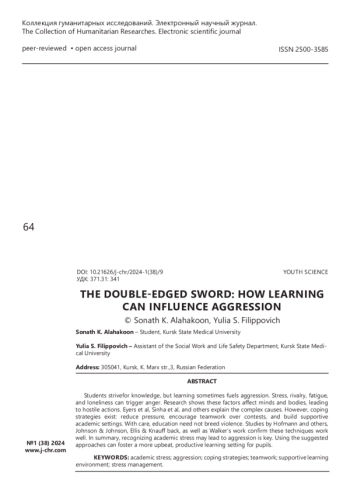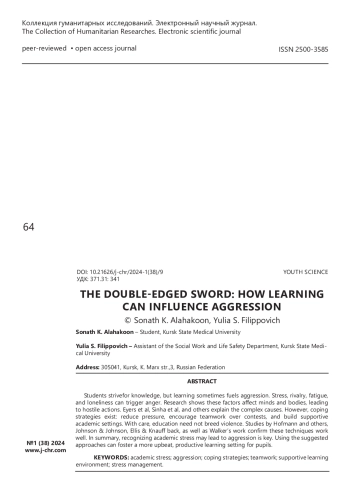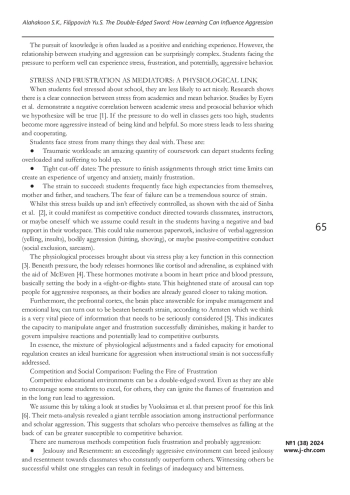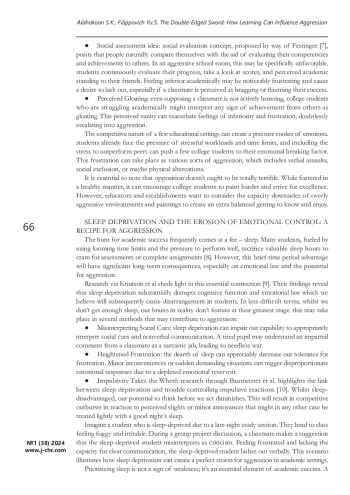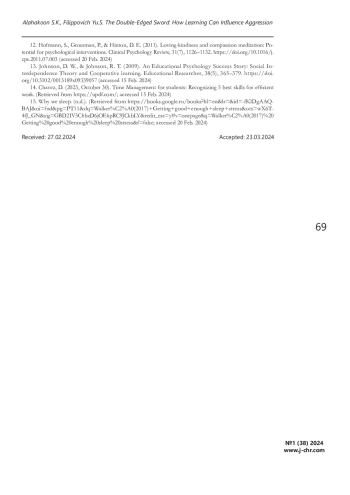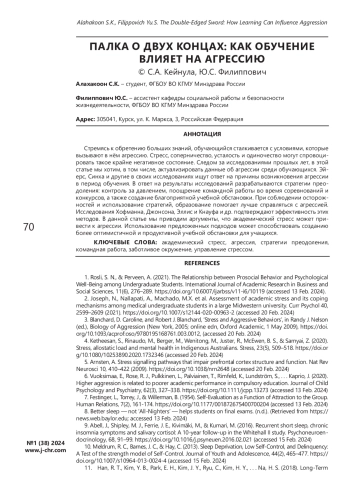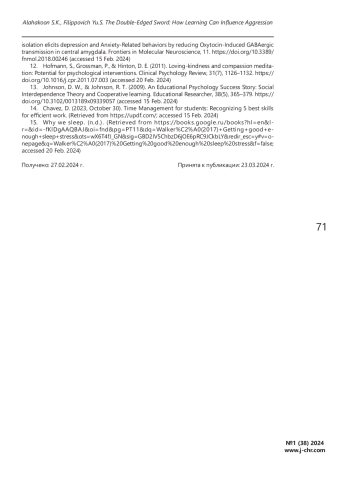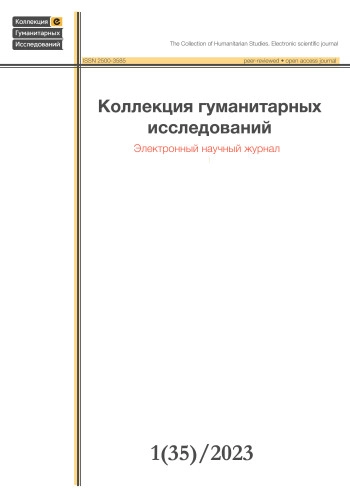1. Rosli, S. N., & Perveen, A. (2021). The Relationship between Prosocial Behavior and Psychological Well-Being among Undergraduate Students. International Journal of Academic Research in Business and Social Sciences, 11(6), 276-289. https://doi.org/10.6007/ijarbss/v11-i6/10119 (accessed 13 Feb. 2024).
2. Joseph, N., Nallapati, A., Machado, M.X. et al. Assessment of academic stress and its coping mechanisms among medical undergraduate students in a large Midwestern university. Curr Psychol 40, 2599-2609 (2021). https://doi.org/10.1007/s12144-020-00963-2 (accessed 20 Feb. 2024)
3. Blanchard, D. Caroline, and Robert J. Blanchard, ‘Stress and Aggressive Behaviors’, in Randy J. Nelson (ed.), Biology of Aggression (New York, 2005; online edn, Oxford Academic, 1 May 2009), https://doi.org/10.1093/acprof:oso/9780195168761.003.0012, (accessed 20 Feb. 2024)
4. Ketheesan, S., Rinaudo, M., Berger, M., Wenitong, M., Juster, R., McEwen, B. S., & Sarnyai, Z. (2020). Stress, allostatic load and mental health in Indigenous Australians. Stress, 23(5), 509-518. https://doi.org/10.1080/10253890.2020.1732346 (accessed 20 Feb. 2024)
5. Arnsten, A. Stress signalling pathways that impair prefrontal cortex structure and function. Nat Rev Neurosci 10, 410-422 (2009). https://doi.org/10.1038/nrn2648 (accessed 20 Feb. 2024)
6. Vuoksimaa, E., Rose, R. J., Pulkkinen, L., Palviainen, T., Rimfeld, K., Lundström, S., . . . Kaprio, J. (2020). Higher aggression is related to poorer academic performance in compulsory education. Journal of Child Psychology and Psychiatry, 62(3), 327-338. https://doi.org/10.1111/jcpp.13273 (accessed 13 Feb. 2024)
7. Festinger, L., Torrey, J., & Willerman, B. (1954). Self-Evaluation as a Function of Attraction to the Group. Human Relations, 7(2), 161-174. https://doi.org/10.1177/001872675400700204 (accessed 13 Feb. 2024)
8. Better sleep - not ‘All-Nighters’ - helps students on final exams. (n.d.). (Retrieved from https://news.web.baylor.edu (accessed 13 Feb. 2024)
9. Abell, J., Shipley, M. J., Ferrie, J. E., Kivimäki, M., & Kumari, M. (2016). Recurrent short sleep, chronic insomnia symptoms and salivary cortisol: A 10-year follow-up in the Whitehall II study. Psychoneuroendocrinology, 68, 91-99. https://doi.org/10.1016/j.psyneuen.2016.02.021 (accessed 15 Feb. 2024)
10. Meldrum, R. C., Barnes, J. C., & Hay, C. (2013). Sleep Deprivation, Low Self-Control, and Delinquency: A Test of the strength model of Self-Control. Journal of Youth and Adolescence, 44(2), 465-477. https://doi.org/10.1007/s10964-013-0024-4 (accessed 15 Feb. 2024)
11. Han, R. T., Kim, Y. B., Park, E. H., Kim, J. Y., Ryu, C., Kim, H. Y., . . . Na, H. S. (2018). Long-Term isolation elicits depression and Anxiety-Related behaviors by reducing Oxytocin-Induced GABAergic transmission in central amygdala. Frontiers in Molecular Neuroscience, 11. https://doi.org/10.3389/fnmol.2018.00246 (accessed 15 Feb. 2024)
12. Hofmann, S., Grossman, P., & Hinton, D. E. (2011). Loving-kindness and compassion meditation: Potential for psychological interventions. Clinical Psychology Review, 31(7), 1126-1132. https://doi.org/10.1016/j.cpr.2011.07.003 (accessed 20 Feb. 2024)
13. Johnson, D. W., & Johnson, R. T. (2009). An Educational Psychology Success Story: Social Interdependence Theory and Cooperative learning. Educational Researcher, 38(5), 365-379. https://doi.org/10.3102/0013189x09339057 (accessed 15 Feb. 2024)
14. Chavez, D. (2023, October 30). Time Management for students: Recognizing 5 best skills for efficient work. (Retrieved from https://updf.com (accessed 15 Feb. 2024)
15. Why we sleep. (n.d.). (Retrieved from https://books.google.ru/books?hl=en&lr=&id=-fKlDgAAQBAJ&oi=fnd&pg=PT11&dq=Walker (2017)+Getting+good+enough+sleep+stress&ots=wX6T-4fJ_GN&sig=GBD2IV5ChbzD6jOE6pRC9JCkbLY&redir_esc=y#v=onepage&q=Walker (2017) Getting good enough sleep stress&f=false (accessed 20 Feb. 2024)
